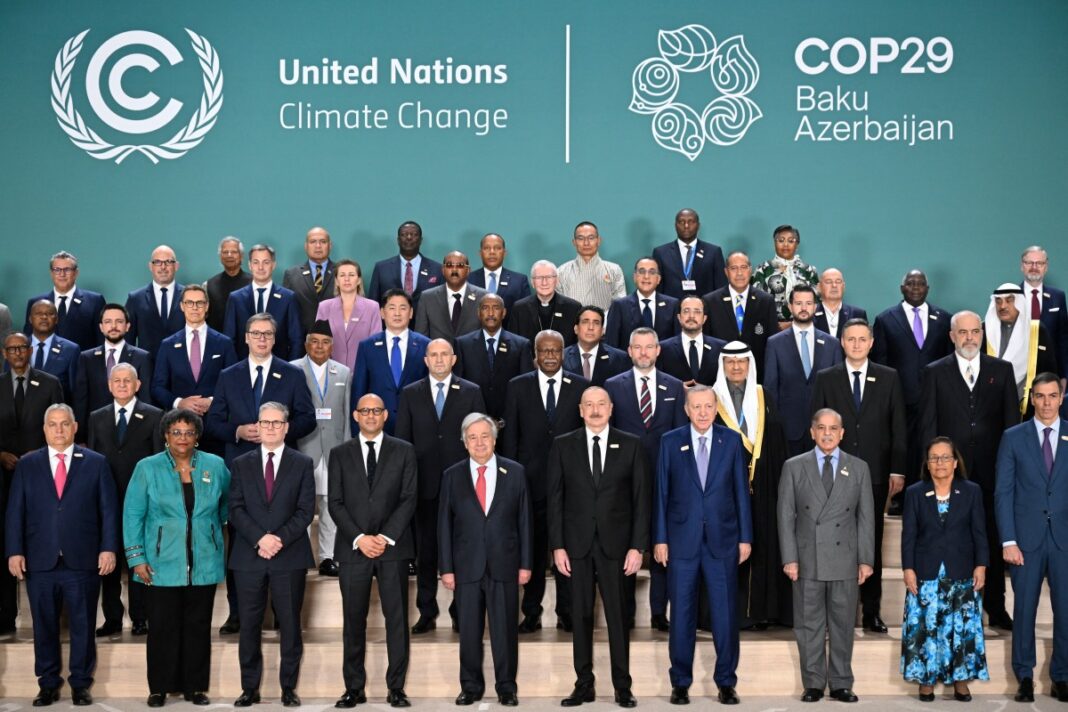Opposition Democracy and Progress (DEVA) Party leader Ali Babacan has criticized President Recep Tayyip Erdoğan for bringing 1,860 people to the COP29 climate summit in Baku, calling it an example of wasteful government spending.
Speaking during an interview with Karar TV, DEVA Party Chair Babacan condemned the Turkish government for what he described as extravagant spending during the United Nations Climate Change Conference, COP29, held in Baku, Azerbaijan, from November 11 to November 22.
Babacan said President Erdoğan attended the summit with an entourage of 1,860 people that included government officials, specially invited members of parliament and others.
“A meeting like this is supposed to focus on environmental concerns and sustainability, yet we see 1,860 people attending from Turkey. It’s a clear display of waste,” Babacan said. He noted that one of his party’s own deputies, Evrim Rızvanoğlu, was excluded from the official delegation despite offering to cover her own expenses.
“Our deputy was told she couldn’t join, but upon arriving, she saw not only committee members but also personally invited MPs and a range of other attendees. This kind of opportunity-grabbing is outrageous,” Babacan added.
He criticized the government’s spending habits, saying the delegation’s size was reflective of a broader culture of excess in public administration.
“It’s not just in public institutions. Everyone who has the opportunity wants to go, regardless of necessity,” Babacan said.
The criticism comes as Erdoğan and his administration face ongoing scrutiny over government spending, with opposition leaders frequently pointing out contradictions between lavish expenditures and Turkey’s economic challenges. Earlier this year, Erdoğan’s five-plane “fleet” for a NATO summit in Washington, D.C., and his stay in one of the city’s most expensive hotels drew similar backlash.
The Turkish president’s travel arrangements and use of resources have often sparked debates about wasteful public spending, especially in the context of Turkey’s economic crisis. Critics argue that such extravagance undermines public trust, particularly as many citizens struggle with inflation and austerity measures aimed at reducing state expenditures.
Labor unions and opposition parties have also questioned the effectiveness of the government’s austerity measures announced earlier this year.
Vice President Cevdet Yılmaz and Finance Minister Mehmet Şimşek unveiled a “Savings and Efficiency Package” that seeks to save approximately 100 billion lira ($3.1 billion) through restrictions on new vehicle purchases and construction projects. However, opposition leaders argue that the measures disproportionately impact low-income citizens while failing to curb high-level waste.
Social media users expressed frustration over the size of the delegation and the apparent disconnect between government actions and the economic hardships faced by ordinary citizens.
Critics have long accused the ruling Justice and Development Party (AKP) government under Erdoğan’s leadership of illegally amassing personal fortunes, in stark contrast to Erdoğan’s humble proclamation in the 1990s about his possessions being limited to his wedding ring when he was a young and fiery politician from the Islamist Welfare Party.
A corruption probe in 2013, implicating Erdoğan and his inner circle, marked a turning point, with the government’s response culminating in a purge of the judiciary and law enforcement.
Dissatisfaction among the people continues to grow, especially given the country’s economic plight and the financial woes of citizens. The contrast between the lifestyle of the AKP elite and the daily struggles of average Turks is fueling a broader discussion about how Erdoğan and the AKP are draining Turkey’s resources while the people have to make do with the leftovers.
